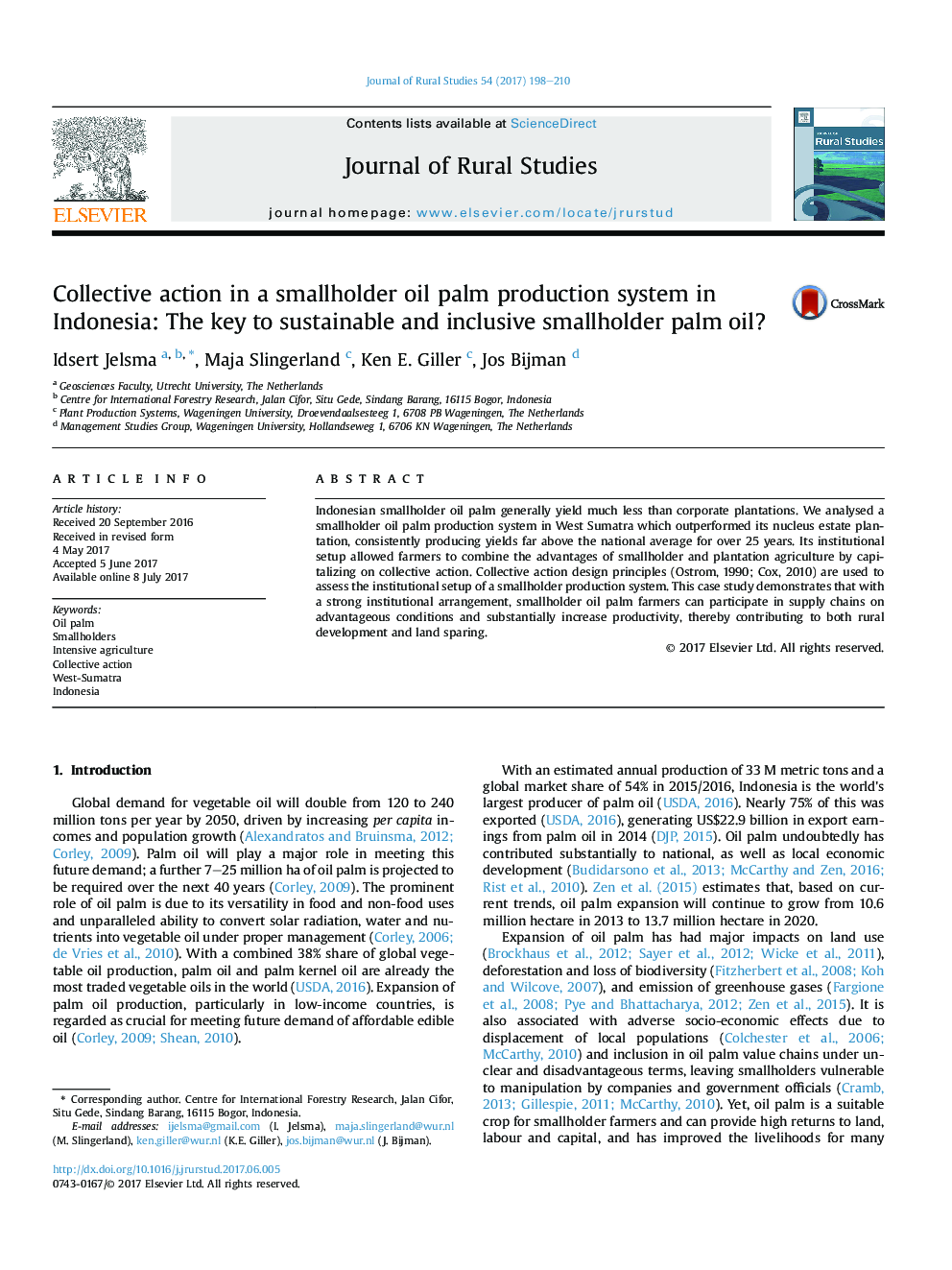| Article ID | Journal | Published Year | Pages | File Type |
|---|---|---|---|---|
| 6460043 | Journal of Rural Studies | 2017 | 13 Pages |
â¢Oil palm farmers can manage oil palm intensively over prolonged periods of time.â¢Benefits of smallholder & large scale farming were combined through collective action.â¢Collective action requires development of a suitable and strong institutional setup.â¢Institutional development requires considerable external and policy support.â¢Collective action can support farmer inclusion in value chains on advantageous terms.
Indonesian smallholder oil palm generally yield much less than corporate plantations. We analysed a smallholder oil palm production system in West Sumatra which outperformed its nucleus estate plantation, consistently producing yields far above the national average for over 25 years. Its institutional setup allowed farmers to combine the advantages of smallholder and plantation agriculture by capitalizing on collective action. Collective action design principles (Ostrom, 1990; Cox, 2010) are used to assess the institutional setup of a smallholder production system. This case study demonstrates that with a strong institutional arrangement, smallholder oil palm farmers can participate in supply chains on advantageous conditions and substantially increase productivity, thereby contributing to both rural development and land sparing.
